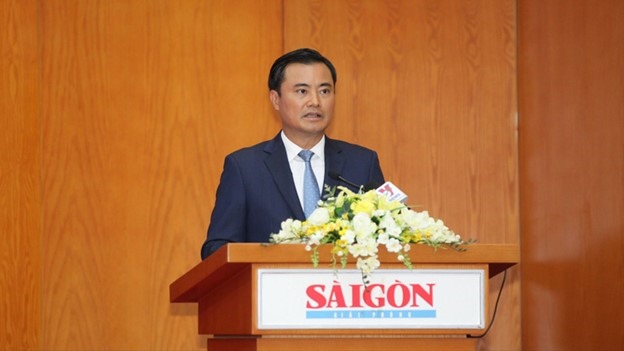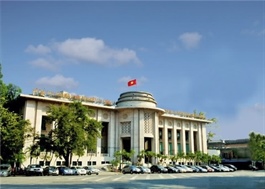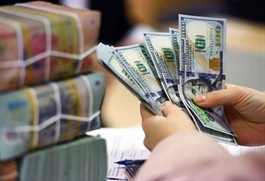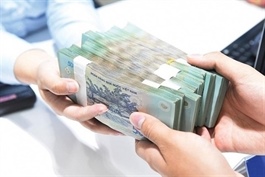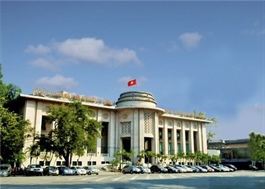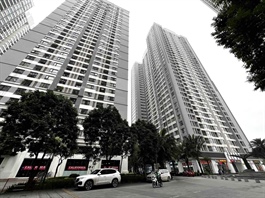Ho Chi Minh City wants to attract remittances for infrastructure development
Ho Chi Minh City wants to attract remittances for infrastructure development
Ho Chi Minh City aims to attract remittances for infrastructure development projects because of its substantial infrastructure demands and consistently high remittance inflows to the city, heard a seminar in the southern metropolis on Tuesday.
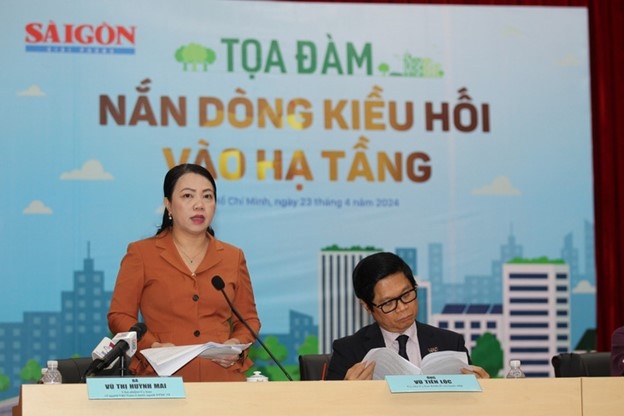
Vu Thi Huynh Mai (L), head of the Ho Chi Minh City Committee for Overseas Vietnamese Affairs, speaks at the 'Drawing Remittances to Infrastructure' seminar on April 23, 2024. Photo: A.H. / Tuoi Tre |
At the 'Drawing Remittances to Infrastructure' seminar held by Sai Gon Giai Phong (Liberated Saigon) newspaper, the State Commission for Overseas Vietnamese Affairs reported that incoming remittances to Vietnam totaled US$206 billion between 1993 and 2023.
More than 5.3 million Vietnamese nationals are living abroad, including some 2.3 million people who are connected to Ho Chi Minh City.
As a result, remittances to the southern metropolis made up a large proportion of the country’s total.
Last year alone, Vietnam received remittances totaling some $16 billion with around $9.46 billion sent to Ho Chi Minh City, surging 43.3 percent year on year and triple the foreign investment in the city.
In the first quarter of this year, remittances to Ho Chi Minh City neared $2.9 billion, up over 35 percent year on year, the highest growth rate in three years.
Meanwhile, the city's infrastructure development faces many hindrances owing to a dearth of capital.
Bui Xuan Cuong, vice-chairman of the Ho Chi Minh City People’s Committee, said that the city's population exceeds 10 million people, emphasizing the substantial demand for traffic infrastructure, schools, hospitals, housing, and parks.
|
|
| Vice-chairman of the Ho Chi Minh City People’s Committee Bui Xuan Cuong informed that remittances were three times the foreign investment in the city in 2023. Photo: A.H. / Tuoi Tre |
Remittances make up a large resource for the city’s development, Cuong added.
Many overseas Vietnamese expressed their expectation to invest further in their homeland, especially Ho Chi Minh City, the official informed.
Early last year, the city assigned the Ho Chi Minh City Committee for Overseas Vietnamese Affairs to draw up a plan to attract and effectively use remittances.
Vu Thi Huynh Mai, head of the committee, stated that one of the main purposes of the plan was to draw remittances to infrastructure, production, and business.
Once the plan is executed, at least five projects in the city will be financed with such remittances.
The plan will also feature the issuance of remittance bonds.
According to Dr. Nguyen Tri Hieu, head of the Institute of Research and Development of Global Financial and Real Estate Markets, overseas Vietnamese account for only five percent of the total number of Vietnamese and Vietnamese-born people in the world, but they have contributed considerably to the homeland’s development.
He estimated the income of the 5.3 million overseas Vietnamese people at $100 billion, or one fourth of Vietnam’s GDP.
In the past, overseas Vietnamese tended to deposit U.S. dollars at banks for profits.
However, local banks have offered no interest for deposits in U.S. dollars over the past few years, so Vietnamese people abroad are hesitant to send remittances to Vietnam.
Therefore, the city should issue remittance bonds early, Hieu proposed.


